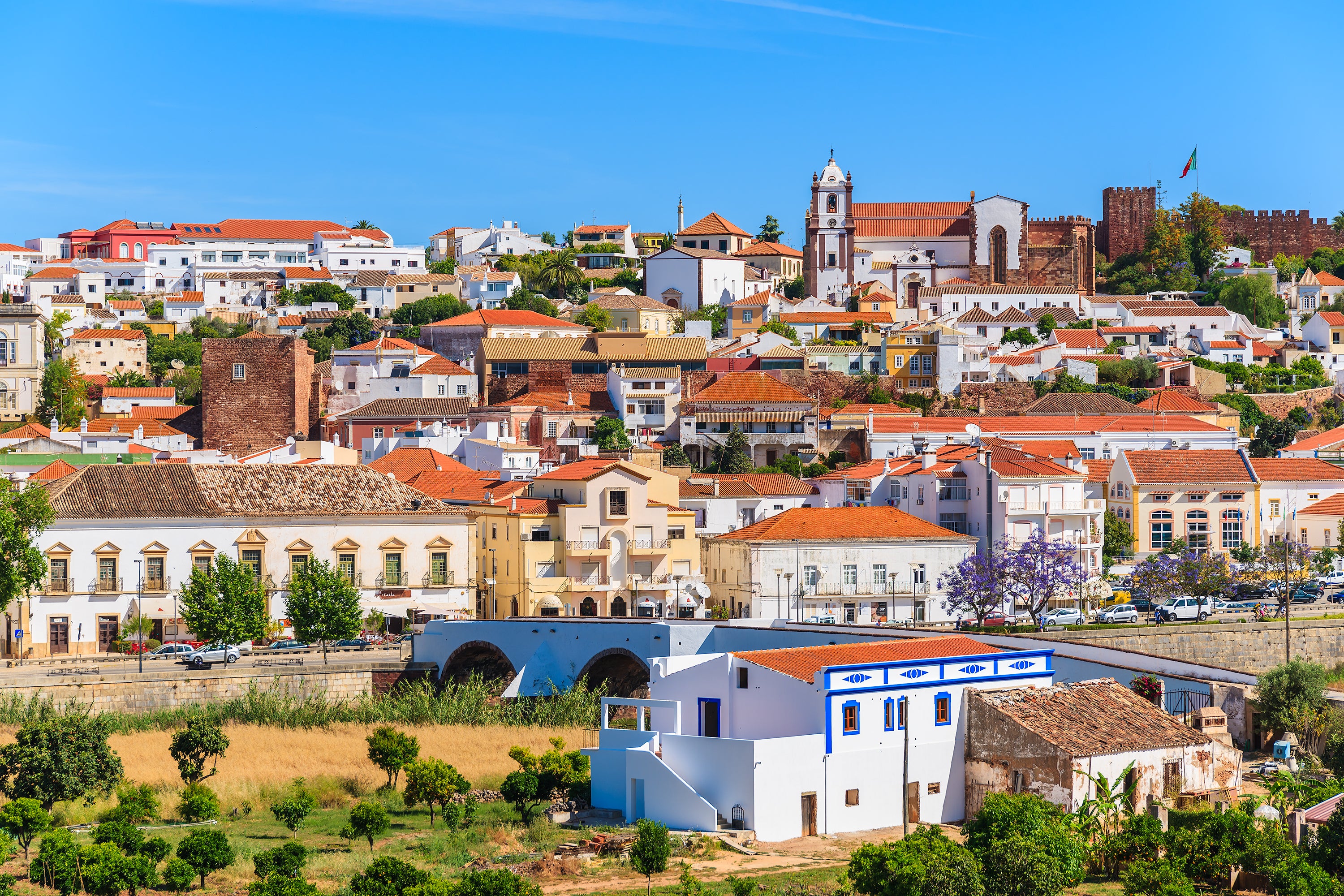Portugal ran on renewable energy for six days – could the UK ever do the same?
The European country’s near-week-long run on renewables could be a vision of the future – but whether it’s achievable by the UK is another question. Chris Stokel-Walker ignores the Cop28 talk to see what action Britain should be taking


When it comes to energy, all eyes are focused on one place: Dubai, in the United Arab Emirates, where nearly 100,000 delegates are attending Cop28, the world’s biggest-ever climate conference.
The biggest single question that the great and the good are grappling with is how to cut our use of polluting fossil fuels, which we all rely on but which threaten to create irreversible damage to our natural environment.
But for all the hot air expended in conference halls – and the air miles racked up getting to Dubai – delegates might instead want to look 3,750 miles west of the Cop conference hall… to Portugal.
Last month the country had a six-day run producing more renewable energy than the entire country needed for electricity – paving a path to a more sustainable future. This year already, renewables have supplied 56 per cent of the country’s energy needs.
“It’s absolutely brilliant,” says Adi Imsirovic, director of Surrey Clean Energy and a senior associate at the Centre for Strategic and International Studies.
“Portugal’s success can be attributed to multiple factors,” says Ged Barlow, chief executive at Net Zero North West, an industry cluster based in the North West of England aiming to decarbonise energy use. “The country is blessed with abundant renewable sources, such as wind and solar energy, which they have strategically harnessed. This, in combination with their commitment to renewable energy, has allowed them to generate surplus electricity. Furthermore, their focus on energy efficiency and innovation has contributed to their remarkable success.”

Portugal has already made clear its intentions to adopt a renewables-powered future. By 2030, the country plans to generate 85 per cent of its electricity from renewables, to put its gas-fired power stations to rest by 2040, and to be carbon-neutral by 2045.
Is something similar possible here in the UK? Potentially, say the experts. “Can the UK do it? Yes, it can,” says Imsirovic. “Now, the UK does need to do a bit of homework.”
“This achievement holds immense significance not just for Portugal but for the rest of us, including the UK,” says Barlow. However, it’ll require work – and money. “By investing in renewable energy infrastructure, implementing supportive policies, and encouraging private sector involvement, countries like the UK can certainly strive towards similar achievements,” Barlow explains.
Others are less certain about the potential of the UK to replicate the adoption of green energy tech quite so easily. “It’s unlikely any time soon,” believes Ian Parke, a specialist advisor to the Institution of Civil Engineers on low-carbon energy. The things working against the UK managing to mimic Portugal’s green drive are numerous. For one thing, there’s a massive difference in scale for both countries. “Portugal’s population is under 11 million while the UK’s is over 67 million, so Portugal’s residents are generating much smaller demand for energy,” says Parke.
The energy mix – or the sources of energy that’s consumed and where it comes from – in each country are also vastly different. While the UK has nearly 10 times the length of coastline than Portugal, the European country is lucky to be blessed with plenty of hydropower.
Portugal has historically invested in significant amounts of hydropower because of its climate and weather. The reason that Portugal was able to succeed for six days in powering the electricity grid between 30 October and 6 November using only renewables was in part because it was particularly wet and windy that week.
As the country has drawn down its demand for coal-powered energy, it has managed to keep a regular 5 per cent of its energy mix from hydropower. The comparable figure in the UK is just 0.27 per cent.
The UK government has provided mixed signals about its support and welcome for renewables, in particular wind power. In September, the government changed planning rules in a move that it claimed would boost investment in onshore wind – but has since received no new applications for onshore projects.
That contrasts with other European countries, where renewables are booming. In an attempt to reverse the negative trend, the UK has increased the price that such offshore wind power could earn companies producing it by 66 per cent for next year.
In contrast, offshore wind is seen as ripe for investment, with the United Arab Emirates investing in two large UK offshore wind projects within a week, according to the Financial Times. However, the boss of SSE, one energy company, has said that the government needs to boost incentives for offshore wind production, too.

In Portugal, the quantity of hydropower ready to deploy is important because it can, compared to other energy sources, be called upon quickly to meet demand, says Imsirovic. It’s called “spinning power” within the industry. “It’s called that because almost literally, the turbines are slowly spinning in anticipation of demand,” he says.
The countries are also different in terms of planning infrastructure and cost. In the UK, developing the energy infrastructure that would help power a green energy revolution would be far more expensive – something that could scupper the potential rollout of that infrastructure. “The government is making a sustained effort to address planning issues and some new measures will hopefully be in place by the end of this year,” says Parke. However, some of that won’t be in place until 2025.
Another issue stems from the way our National Grid – the infrastructure that transports power and energy across the country – is set up. “The current National Grid in the UK isn’t able to accommodate significant localised generation,” says Parke, meaning that it can’t easily bring green energy into the grid and move it to where it’s needed. That’s an issue that Imsirovic also highlights as stopping the UK from immediately following in Portugal’s footsteps. “The holy grail is sorting out demand,” he explains.
One of the core reasons the UK languishes behind its continental European competitors is that unlike in Europe, in the UK we don’t have reactive markets, where it’s possible to forecast and track demand in real-time, rather than estimate it. “Demand response is easily the cheapest way of achieving reduced demand,” says Imsirovic.
The ongoing – but stalled – smart meter rollout could help make that possible, but progress has been slow. Without that real-time information, energy demand can spike violently in peaks and troughs, and the easiest, cheapest way at present to fill the gaps in UK supply when needed are not from clean fuels: it’s coal and gas.
The UK does have cleaner alternatives to coal and gas, says Imsirovic, with between seven and 10 per cent of our energy supply coming from nuclear power since 1990, but nuclear isn’t as responsive to changes in demand as hydro is.
It all adds up to a report card for the UK’s energy sector that will be familiar to those who didn’t necessarily succeed at school: “Tries hard, but could do better.”
“Overall, it requires investment to make it more renewable friendly,” Parke says.
The adviser to the Institution of Civil Engineers doesn’t think all those things are insurmountable challenges. “These challenges don’t preclude the UK from developing more renewable energy, but to make faster progress, they must be addressed,” says Parke.
Portugal’s progress is something to be aimed for – and is something that can be achieved with enough time, effort and money, says Imsirovic. “It just shows anything can be done.”






Join our commenting forum
Join thought-provoking conversations, follow other Independent readers and see their replies
Comments